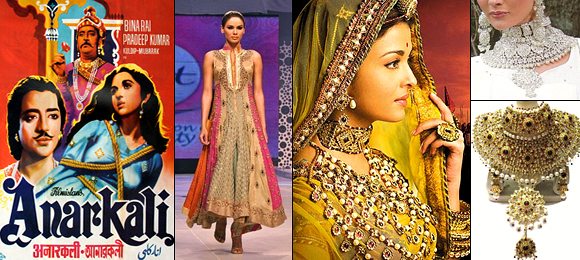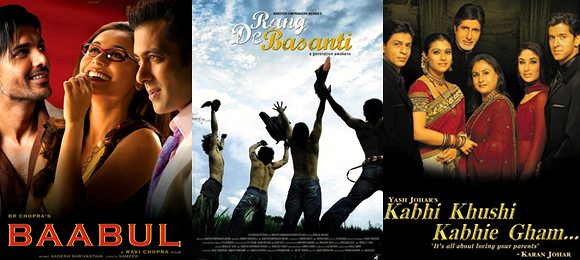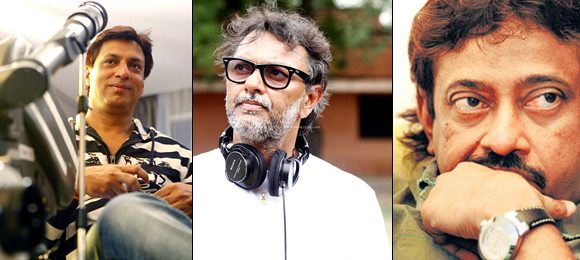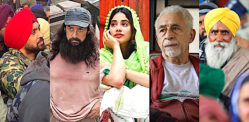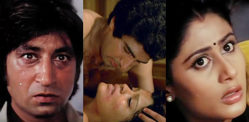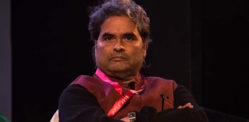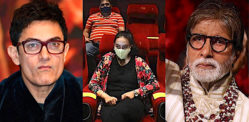The Hindi film industry was estimated to be worth $2.2 billion (£1.3b) in 2012.
The Hindi movie industry based in Mumbai, popularly known as ‘Bollywood’, has influenced daily life and culture in India for decades now. In fact, movies are the mainstay of entertainment and almost a religion in the nation.
Attend any Indian wedding and you will find the ladies attired in the finest garments modelled after Bollywood fashion and revelers dancing to throbbing hit songs during the ‘baraat’.
Bollywood has for long exerted a deep influence on popular Indian fashion. Any outfit adorned by an actor or actress in a hit movie immediately becomes a prime sartorial trend for tailors to reproduce.
The ready-made industry manufactures these clothes in bulk and the designs are named after the character or movie, for example; the anarkali suit, the jewellery in Jodha Akbar (2008) and the masakali suit from Delhi-6 (2009) to name just a few.
The fashion industry capitalises on this trend by launching their clothes and jewellery in movies. Top stars are made brand ambassadors to endorse fashion products.
One of the earliest movie influences on Indian fashion was Madhubala’s anarkali attire in Mughal-e-Azam (1960) which consisted of long flowing churidars and kurtas. The anarkali kameez is popular even today, around 50 years after the film was released.
Cut to 1994, and Madhuri Dixit’s outfits in Hum Aapke Hain Koun…! (1994) were widely appreciated with women lapping up the styles and reproducing them at weddings and other social occasions. The suits worn by Rani Mukerji in Bunty Aur Babli (2005) were another fashion rage for some time.
Bollywood musicals are full of song and dance. And Bollywood dancing is very popular among girls in India who are keen to learn this art more than any classical dance. The Indian diaspora abroad also keeps in touch with their roots by watching Hindi movies and learning Bollywood dancing.
In India, movie actors have adoring fans that form clubs in their honour, ape their looks and style, and are not shy to loosen their purse strings to buy products their favourite star endorses.
On a more serious note, the Hindi movie industry has also had a deeper impact on Indian society. For example, the film Baabul (2006) raised the issue of widow remarriage, while Kabhi Khushi Kabhi Gham (2001) extolled the virtue of respecting elders. The widely acclaimed Rang De Basanti (2006) gave voice to youth angst about the nation’s corrupt politics and politicians.
Modern Bollywood directors like Madhur Bhandharkar and Prakash Mehra have raised awareness about the issues of the day through their movies. The films Rann (2007), Corporate (2006) and Gulaal (2009) exposed political and social controversies.
In 2000, the Indian government legitimised the Indian film-making industry which opened the doors to numerous corporate backing of the movie industry. This revolutionised film production and marketing in India, and professionally managed companies ushered in western-style studio practices.
Gone are the days when movie making was a lottery in India. Today, 60 per cent of income is guaranteed even before a film is released thanks to pre-selling of music, satellite TV, radio and in-flight entertainment rights, as well as marketing of mobile phone ringtones.
As a result, Bollywood movies are routinely crossing the Rs 100 crore (£10m) mark with ease. The top grossing Bollywood movie of all time is currently Dhoom 3 (2013) at Rs 528 crore (£52.8m).
Bollywood has surpassed Hollywood in the number of tickets sold annually. But it still lags far behind in total revenue gathered because of the much lower prices of tickets in India.
Revenue from overseas is a big reason why Bollywood movies are becoming much more successful of late. In fact, industry pundits say a cinema theatre in west London is the highest earning screen in the world for Bollywood films.
The growing reach and influence of Indian movies has had a major impact on foreign economies too. Bollywood contributes about £200m annually to the British economy thanks to spending on filming in the island nation, as well as ticket sales and distribution.
Foreign locations compete with each other to host Bollywood roadshows and movie award ceremonies as these events give a big boost to the local economy. The International Indian Film Academy awards show in Tampa, FL in the USA earlier this year was estimated to have provided a $100 million (£62m) turnover to the city’s revenues.
Though the Indian economy may be tanking, Bollywood continues to rule the roost with increasing film budgets and the construction of more multiplexes around the country.
The reason is movies have become an integral part of everyday life in India. To get away from the economic slowdown and rising onion prices, Indians go to cinema halls to entertain themselves.
The Hindi film industry was estimated to be worth $2.2 billion (£1.3b) in 2012. Despite the economic slowdown, the industry is growing rapidly every year thanks in part to the steady increase in the number of movie screens across the nation.
Bollywood moguls are confident about the industry’s future. Today, Hindi movies are backed by India’s 350 million middle class spenders with rising disposable incomes as well as 50 million well-heeled South Asians overseas with a passion for good cinema.
The sky seems to be the limit and the Indian media and entertainment industry is on track to rake in revenues of $100 billion (£62b) in 10 years time.




















































